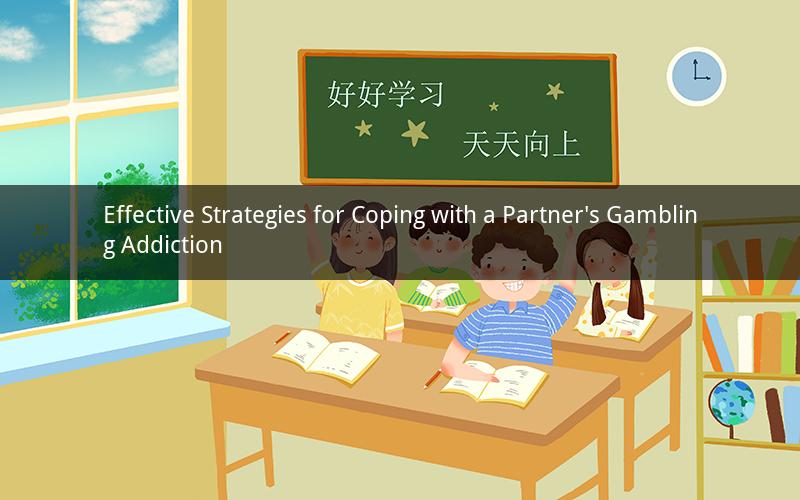
Introduction:
Gambling addiction is a complex issue that can strain relationships and disrupt the lives of those affected. If you are in a relationship with someone struggling with a gambling addiction, it's important to understand the challenges you may face and learn how to cope effectively. This article explores various strategies for dealing with a partner's gambling addiction, providing guidance and support for individuals in such situations.
1. Educate Yourself About Gambling Addiction:
To effectively deal with a partner's gambling addiction, it's crucial to educate yourself about the condition. Learn about the signs and symptoms of gambling addiction, the psychological factors that contribute to it, and the potential consequences. Understanding the addiction can help you empathize with your partner and make informed decisions.
2. Seek Professional Help:
Encourage your partner to seek professional help for their gambling addiction. Therapists, counselors, and support groups can provide valuable guidance and support. Attend therapy sessions together, if possible, to strengthen your relationship and address any underlying issues.
3. Set Clear Boundaries:
Establishing clear boundaries is essential when dealing with a partner's gambling addiction. Communicate your concerns and set limits on financial and emotional support. For instance, you may decide to limit access to credit cards or withdraw funds from joint accounts. Boundaries help protect you from the negative consequences of the addiction.
4. Support Your Partner's Recovery Efforts:
Supporting your partner's recovery is crucial in overcoming their gambling addiction. Encourage them to participate in support groups, such as Gamblers Anonymous, and attend therapy sessions regularly. Offer to accompany them to appointments or support group meetings to show your commitment.
5. Take Care of Yourself:
It's important to prioritize your own well-being when dealing with a partner's gambling addiction. Seek support from friends, family, or support groups for individuals affected by gambling addiction. Engage in self-care activities, such as exercise, hobbies, or therapy, to maintain your mental and emotional health.
6. Financial Management:
Gambling addiction often leads to financial difficulties. Work together to create a budget and prioritize essential expenses. Consider seeking financial counseling or assistance from a professional to regain control of your finances. Establish a financial safety net to cover unexpected expenses and prevent your partner from relapsing.
7. Foster Open Communication:
Open and honest communication is key in dealing with a partner's gambling addiction. Encourage your partner to share their feelings and struggles without fear of judgment or criticism. Actively listen to their concerns and offer empathy and understanding. This can help build trust and strengthen your relationship.
8. Develop Coping Mechanisms:
Developing coping mechanisms can help you manage the stress and emotional impact of your partner's gambling addiction. Engage in activities that promote relaxation, such as meditation, yoga, or spending quality time with loved ones. Learning to cope effectively can improve your overall well-being and reduce the risk of developing secondary issues.
9. Encourage Responsible Gambling Education:
Educate yourself and your partner about responsible gambling. Discuss the risks and consequences of gambling addiction and encourage your partner to seek out educational resources. Understanding the potential dangers can help prevent relapse and promote healthier habits.
10. Be Patient and Understanding:
Healing from a gambling addiction is a long-term process. Be patient and understanding throughout your partner's journey. Avoid enabling their addiction or becoming overly critical. Instead, focus on supporting their efforts to overcome the addiction and rebuild a healthier life.
Frequently Asked Questions:
1. Q: Can I force my partner to seek help for their gambling addiction?
A: While you can encourage your partner to seek help, you cannot force them to do so. Empower them to make their own decisions and offer support, but ultimately, the decision to seek help must come from them.
2. Q: How can I handle financial stress caused by my partner's gambling addiction?
A: Create a budget, prioritize essential expenses, and seek financial counseling if needed. Establish a financial safety net to cover unexpected expenses and prevent your partner from relapsing.
3. Q: Will my partner's gambling addiction ever go away?
A: Overcoming a gambling addiction is a long-term process, but many individuals successfully recover with the right support and treatment. Encourage your partner to stay committed to their recovery journey.
4. Q: Can I recover from the emotional toll of my partner's gambling addiction?
A: Yes, it's possible to recover from the emotional toll of dealing with a partner's gambling addiction. Seek support from friends, family, or support groups, and engage in self-care activities to maintain your mental and emotional well-being.
5. Q: Will my relationship with my partner improve after overcoming their gambling addiction?
A: Overcoming a gambling addiction can strengthen your relationship if both partners are committed to healing and rebuilding trust. Open communication, empathy, and support are key factors in restoring a healthy relationship.